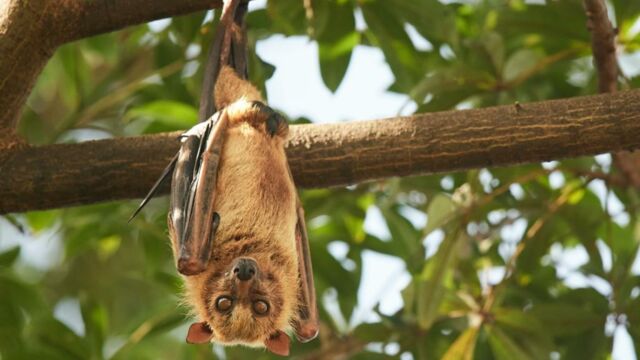How did Covid-19 manage to infect us through various mutations and become the source of a global pandemic that confined a huge part of the population? Did it come from the pangolin, bat, or raccoon dog (a species close to the raccoon)? Experts are still wondering...
Discover our latest podcast
RhGB07 and bats
Two new coronaviruses, one of them close to the Covid-19 according to infectious experts, are lurking in British bats. For the moment, don't panic, neither of these two viruses is likely to cause as much damage as the previous one (the bar is still very high).
One of the two pathogens is called RhGB07. Discovered by our researchers and bat hunters, this coronavirus, according to them, would only need some mutations and 'adaptations' to be transmitted to humans.
The zoonosis
The other one, closer to Covid-19, belonging to the same group, shows no sign of danger and is apparently very far from being able to infect humans. Its cousin, RhGB07, is also still far from being able to infect humans despite its relative proximity in terms of genome. The academics emphasized that the risk posed to society by RhGB07 was low.
Read more:
⋙ Covid-19 should be redefined due to mutations, expert claims
⋙ Covid-19 can remain on these groceries for days, as per scientists
A Covid-like virus has been found lurking in bats native to Britain, which is just a few mutations away from striking humanshttps://t.co/eNmiBImeWE
— The Mirror (@DailyMirror) March 23, 2023
However, with increasing urbanisation and climate change, more and more species are harbouring viruses that are harmless to them but dangerous to humans and are likely to transmit these pathogens to us. This principle, zoonosis, has already occurred many times in history with smallpox, measles etc.
Read more ⋙ New virus discovered in rodents in Europe, should we be worried?
Detecting hot spots
The British and Swiss scientists involved in the new study said their discovery shows the critical importance of monitoring and testing wild animal populations for viruses. And even more so those that cohabit with us.
According to the researchers, who published their study on Biorxiv, the team identified three hotspots where bat species are more likely to mix and thus evolve the said virus. These are the areas near Bristol, Birmingham, and Brighton.
This article has been translated from Gentside DE.
Sources used:
DailyMail: 'Could the next pandemic emerge in BRITAIN? Covid-like virus is found lurking in native bats - and scientists warn it may be just a few mutations away from striking humans'
Biorxiv: 'Surveillance of 16 UK native bat species through conservationist networks uncovers coronaviruses with zoonotic potential'















